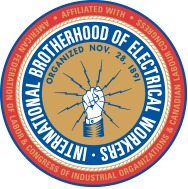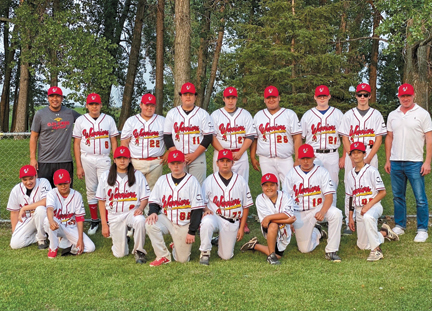It’s not every day that someone wins recognition for doing what they love, but that’s exactly what happened to Winnipeg, Manitoba, Local 2034 member Patrick Leask when he won the National Indigenous Coaching Award.
“It meant so much just to be nominated. I was really surprised, and then even more so to receive the award,” said the Manitoba Hydro store keeper. “Coaching doesn’t feel like work to me. It’s so rewarding on its own, to be able to teach the game I love and work with amazing kids.”
Leask won the award for his work with Oji-Cree Softball, a program he started about a year ago to provide more softball opportunities to Indigenous youth in Manitoba. As a member of the Sapotaweyak Cree Nation, he knows first-hand how sparse the options can be for those living on-reserve.
“There are really only two sports I ever played, as options were limited where I’m from: ball in the summer and outdoor hockey in the winter. And we didn’t even get an arena until after I moved away,” Leask said.
Leask’s parents were survivors of the residential school system, a dark period in Canada’s history that involved forced assimilation and abuse of Indigenous people. Both suffered from addiction, including gambling and alcoholism, and couldn’t always support their son’s interests. So, he moved away at age 14 and paved his own path where sports would play a major role in keeping him from slipping into those same traps.
“I had some negative feelings, missing out on opportunities and feeling stuck, but I did what I could on my own and with help from others in the community,” Leask said. “I really loved sports. It helped me forget some of the struggles I was facing at home.”
I was starting to show addictive behaviour,” he said. “But playing with the right people and teams helped me live a healthier lifestyle and make better choices.”Like a lot of people who grow up around addiction, Leask says he was tempted too, but the games and the community kept him on track.
It’s those choices and chances to play that Leask works to impart on his young softball players.
“I really enjoy working with all the kids. They’re always so respectful and eager to learn,” Leask said. “And I’m so proud of the Indigenous youth for how talented they are as athletes as well as how close they are with their community.”
It’s no surprise to Local 2034 Business Manager Mike Espenell that Leask is being honored for his mentorship. It’s an IBEW value too.
“It’s about having a strong sense of community and pride in your work and instilling that in others,” Espenell said. “Patrick really exemplifies that. He’s a true IBEW brother.”
While the program is open to boys and girls, as well as non-Indigenous youth, Leask says he chose to focus on softball in part because his son was interested but didn’t have many opportunities to play. For boys, it’s usually hardball. But when Leask would play with his team, the Layne’s Stars, he noticed a lot of boys playing off to the side, clearly interested and having fun, just without the structure of a team.
“I really wanted to start this to help spark that interest again, as it used to be big back when I was younger,” Leask said.
For Leask, the award isn’t just about teaching kids softball. It’s about teaching them how to thrive.
“It means a lot for me to share where I’m from and encourage others with their goals and dreams, and to pursue them because it will pay off one day,” he said.
Leask even created the logo. It has two softball bats and a thunderbird that represents his son’s spiritual name, Strong Thunderbird Man. And Oji-Cree itself comes from his children’s Indigenous heritage, a mix of Ojibway from Waywayseecappo First Nation and Cree from Sapotaweyak Cree Nation.
“Brother Leask truly embodies the spirit of the IBEW,” said First District International Vice President Thomas Reid. “His story is one of strength, perseverance and compassion and he’s clearly been able to pass that on to the young people he coaches. I look forward to seeing what else he accomplishes.”




